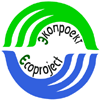|
|
News
Workshop 'Energy Efficiency and the Environment in
Schools', Minsk, Belarus, 23 November 2000
The
main aim of the workshop was to develop and to introduce materials on
Energy Efficiency for secondary schools in Belarus.
Goals:
-
Evaluating
the existing curricula, key environmental and energy efficiency
issues, scope of the recourse package, level of existing understanding
of the problem;
-
Assess
resource and training/support needs for teachers, pupils and teacher
trainers;
-
Agree
on how those needs can be met;
-
Establishment
of a project team.
The workshop was
held in school N 113 in Minsk and facilitated by specially trained
Ecoproject staff with experience in teaching, organizational and youth
work, and environmental education. It was a participatory event, using
small group work and brainstorming to pool the ideas and experience of the
participants. Discussion documents were prepared, translated and
circulated in advance. Stakeholder analysis and the logical framework
approach were used as well.
Program
of the workshop:
|
9.00-9.15
|
Registration
|
|
9.15-9.20
|
Opening of the workshop
|
|
9.20-9.40
|
'Examples of energy saving measures in schools', Mr. Dmitriev G.M., Energy
Audit Expert, State Committee on Energy Efficiency and Supervision
of the Republic of Belarus

|
|
9.40-9.55
|
'Financial support of energy efficiency measures in schools', Mr. Jasenev
V.V., Deputy Director, Minsk City Executive Committee
|
|
9.55-10.05
|
Video Film 'Energy Saving in the Social Sphere'
|
|
10.05-10.20
|
'Energy efficiency awareness campaign', Mrs. Savanovich T.F., Director,
State Committee on Energy Efficiency and Supervision of the Republic
of Belarus
|
|
10.20-11.00
|
'Electricity and Ways of Saving It', example of the lesson for
the 3rd form of the secondary school

|
|
11.00-11.15
|
Break
|
|
11.15-12.00
|
Discussion, exchange of opinions
Conclusions |
A special exhibition introducing children's ideas on the topic of 'Energy
Efficiency and the Environment' was organised during the seminar at the
School No 113 in Minsk.
 
The following key questions were addressed to the participants:
-
How can energy efficiency be best incorporated into the existing teaching
practices and curriculum?
-
Which subject areas should be included in the course contents?
-
Are there any particular subject areas that need to be developed?
-
What sort of duration for energy efficiency course could be incorporated in
the school curriculum – one month, one term, one semester, one or
more years?
-
What type of resource materials should be developed? (e.g. teacher's
resource packs, pupil workbooks,
materials to be used in teacher's training courses)?
-
What
is the most appropriate resource format (regular printed materials/
video films / audio tapes/ Internet presentations, etc.)?
-
By
what means will the materials be originated, pilot-tested,
edited/adapted and distributed?
-
What
is the best way to train teachers to use new materials?
-
What
are the realistic targets (number of schools, pupils, etc.) that could
get involved?
-
Which
other stakeholders should be consulted and involved in the project?
-
How
will the impact of this project be evaluated?
-
How
best will the project be co-ordinated (in order to avoid any
unnecessary duplication of efforts)?
At the end of the discussion the project team
including geography teacher, media specialist, environmental specialist,
energy efficiency expert, methodology expert was chosen.
Participants:
2 directors from Minsk schools:
- Mr. Muraviev A. V., Director of the school N 113;
- Mrs. Prokofieva N. J., Director of the school N 25;
2 teacher trainers (University lecturers):
- Mrs. Andrievich E. V., Belarusian State University;
- Mrs. Zajka E. B., Belarusian Pedagogical University;
2 representatives of the State Committee on Energy Efficiency and Supervision
- Mrs. Savanovich T. F., Director;
- Mr. Dmitriev G. M., Energy Audit Expert;
2 representatives of Ecoproject:
- Mrs. Dereviago T.V., Chairperson;
- Mrs. Alexandrova J. V., International Project Manager;
Representative of the Minsk City Committee on Nature Resources and Environmental Protection:
- Mr. Kozlov M. V., Head of the Committee;
Representative of Minsk City Executive Committee:
- Mr. Jasenev V.V., Deputy Director;
Representative of the Ministry of Education;
- Ms. Romanovets G.S., Senior Inspector on Environmental Education in Secondary
School Curriculum;
Representative of the Academy of Skill Development for Teachers:
- Ms. Bogachiova I.V., Methodist;
As a result of the workshop, a clear project framework was developed which
sets out:
1.Objectives of a future energy efficiency curriculum development
project;
2.Results of such a project;
3.Activities required to achieve the above results;
4.Division of responsibility for project tasks (establishment of a project team);
5.Time scale;
Further consultation will take place with project team identified at the workshop.
To enable the future progress for the activities underlined, a full
project proposal will be developed on the basis of the project plan and
the consultations results.
|

